[#31] Partners in Mischief: Meeting Josh Tenenbaum
By Piet Hut
Last week I met Josh Tenenbaum again, a brilliant AI researcher at MIT. We've only met four times, but at each encounter there was a mutual recognition of a deep resonance in our outlook on world and mind. Josh straddles many fields, from artificial intelligence and cognitive psychology, to analytical and computational modeling, all the way to actual behavioral experiments. And with that, he has the kind of mischievous outlook at the world that I associate with Roger Shepard, who was one of his role models (I found this nicely embellished version below, on the web).
Roger Shepard’s Arc de Triomphe
I first met Josh as a beginning graduate student, when Roger Shepard gave his William James lectures at Harvard, 24 years ago, titled "Mind and World: Principles of Perception". I had just started to work with Roger, through a Sloan grant titled "Limits to Scientific Knowledge", which we had earned at a workshop of the same name at the Santa Fe Institute. Our main merit was that we were the only ones interested in such a grant, when it was offered by the head of the Sloan Foundation at that time, Ralph Gomory.
Roger and I were surprised and amused at getting a grant without having to write a proposal, and in a mischievous mood we wondered about printing a T shirt for Ralph "I came to SFI to look for the brightest minds to talk about limits to scientific knowledge, and all I got was an astrophysicist and a psychologist". To protect Ralph, we thought about adding in small print that Roger had won the National Medal of Science and that I had a position at the Institute for Advanced Study.
A younger Josh
What he remembered about me, Josh told me later, was the part in Roger's lecture where Roger spoke about the interest in lucid dreaming that he and I had in common. Roger gave some examples of surprise in dreaming with excerpts from both his and my dream journals. What stuck in Josh's mind was what happened to me in a dream: when I walked into a bar, the people at the counter turned to me, and sang in unison:
This is Piet's dream
We are all here
And that is why
We get free beer
The second time I met Josh was five years later, just around the time he finished his MIT PhD thesis on "A Bayesian Framework for Concept Learning", which made quite a splash. We had kept in touch via an occasional email, so when he passed through Manhattan, we met up in my favorite Upper West Side Cafe Xando, long gone since. I remember him smiling about "me holding office hour there" as he expressed it. I guess I looked quite comfortable amidst my books, papers, and laptop.
Josh was about to start a junior faculty position at Stanford, and I encouraged him to contact some interesting people I knew in the Bay Area. At that time, he was one of the few people bridging AI computer science methods and cognitive psychology. His approach was to futher generalize the approach to generalization that Roger Shepard had become famous for. At that time I invited him to attend a broadly interdisciplinary summer school in Amherst for graduate students, titled "Values in a World of Fact" but he was too busy with his move to Stanford to spend the two weeks involved.
A more recent Josh
It would be a full sixteen years till we would meet again, in 2015. Again I invited him to come to a summer school, this time as a lecturer. Already then I was laying the groundwork for what later would become YHouse, by organizing a summer school on consciousness, cognition and intelligence, under the umbrella term awareness, in Kobe, Japan, as part of an Initiative for the Synthesis of Studies of Awareness that I had started, ISSA for short (also the name of my favorite Haiku poet).
It was as if the intervening years had dropped away, and we picked up right where we had left off, but I again didn't succeed in getting him to attend one of my summer schools. Undaunted, and remembering that third time's the charm, last week, after another three years, I decided to try again. However, this time I upped the ante: instead of trying to tempt him with a summer school, I thought it was about time to convince him that we can actually collaborate on a whole new project.
And indeed, as soon as we sat down in front of the fire place in the nicely cozy restaurant Catalyst, a stone's throw from Josh's lab, while comparing notes about what we've been up to, we found ourselves converging to very similar ideas. First Josh spoke about a fascinating new initiative, announced just a few days earlier, the MIT Intelligence Quest, in which he plays one of the central roles. Then I summarized what we have accomplished so far with YHouse.
After that, we let our imagination run wild as to what a future theory of learning could entail, and even more interesting, what it would teach us about the nature of reality. We talked about the connections between learning and evolution, and recent ideas about how evolution in turn may be able to evolve the mechanisms of evolution. We also discussed the different speeds of evolution in nature, culture and in AI.
We then turned to the role of the subject in cognitive science, from cognitive psychology to computational neuroscience and related disciplines. I mentioned my interest in non-European philosophical traditions, and the importance those may have in catalyzing further progress in understanding the relationship between subject and object. I mentioned how astronomy, as developed by the Greeks, could not have started without the thousand years old data base of the Babylonians. Similarly, it would have been unwise if the pioneers in modern chemistry had discarded the vast store of accumulated factual knowledge of the alchemists. I proposed that Tibetan Buddhism, for example, could play the analog of alchemy and astrology for cognitive science.
Josh told me that he was thinking of a different version of the idea: a lot of cognitive psychology, or just psychology more generally, has produced extensive data but not rich theory. He thought that much of the theory in psychology is probably as wrong as the theory of alchemy. But he saw the data, the phenomena, the way of measuring the world and experimenting on it, as definitely providing the basis for building what he would call real scientific theories of the mind. And he saw progress being made in that direction in cognitive science. In this regard, he also mentioned the tradition that descends directly from the German introspectionists, in the form of psychophysics that then became the basis for much of experimental psychology.
But, Josh added, all this is about cognitive science as a science of computational intelligence rather than consciousness. For a cognitive science of consciousness, we both agreed that traditions like Buddhism may offer more promising places to look into. An idea like that was anathema two decades ago, when Josh and I first met, but fortunately the times have changed, and cognitive scientists now are more open to exploring such wider horizons. What used to be seen as mischief is finally becoming talk-about-able in academia.
Piet Hut is President of YHouse (where this blog is hosted), Professor of Astrophysics and Head of the Program in Interdisciplinary Studies at the Institute for Advanced Study in Princeton, and a Principal Investigator and Councilor of the Earth-Life Science Institute in the Tokyo Institute of Technology.

![[#31] Partners in Mischief: Meeting Josh Tenenbaum](https://images.squarespace-cdn.com/content/v1/585711b3ebbd1a051da20b4d/1517934519989-PBIZJODX6WQK6Q0561US/roger-klein.jpg)




